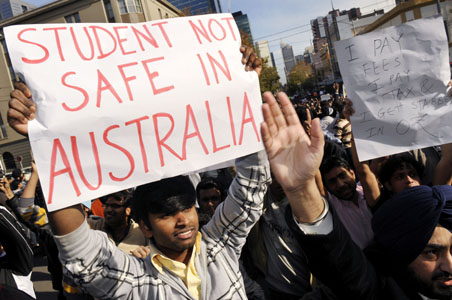As the reports of Indian students being bashed up in Australia have been making news on various TV channels and print media since quite a while, now an important step had been taken to ensure that the two countries- Australia India- builds a partnership in trading and education sector. In an important step for the Australian-Indian relationship, the two countries have outlined a major expansion of the Australia trade network in India. Australian Trade Minister Simon Crean made the announcement last week saying that the Australian Government has been determined to significantly build the relationship with India, a country which is important to Australian immigration and trade. The information of the trade relationship is good news for many Indians who have been impatiently waiting to hear positive news about pathway immigration to Australia.
Australia now seems to have measured up against all the allegations made by people wishing to immigrate to the country and against the unfair practices the country exercise. Currently, Indian nationals studying in Australia with an Australian Student Visa make up the second-largest group on international students in Australia’s multi-million dollar overseas education industry. Many Indians who complete their studies in Australia take up an Australian permanent residence after graduating. This is also an option that the Australian Government provides to foreign students to retain skilled workers. As it is also notable from figures obtained in 2008-2009, India was Australia’s fastest growing major two-way trading partner with total trade between the two nations jumping 55 per cent to $21.7 billion Australian dollars. Addressing the issue Mr. Crean said, “For the past two years this Government has been building and strengthening links with India and my first trip as Trade Minister featured a visit to the sub-continent. Expanding economic links are a vital component in giving effect to the shared commitment to building the relationship.” He also said that there was significant untapped potential in the Indian market, and the two economies have complementary strengths that the expanded Austrade network will be seeking to explore. Five new trade offices will be launched in India and another three existing operations will be expanded, a move that will give Australia the largest trade promotion network in Indian of any foreign country. Under the planned expansion new Austrade offices will be established in Ahmedabad, Chandigarh, Jaipur, Kochi and Pune with offices in Bengaluru, Hyderabad and Kolkata expanded. The news would bring delight to many who wish to immigrate to Australia on skilled immigration or student visas.
_____________________________
www.angadinfo.com













